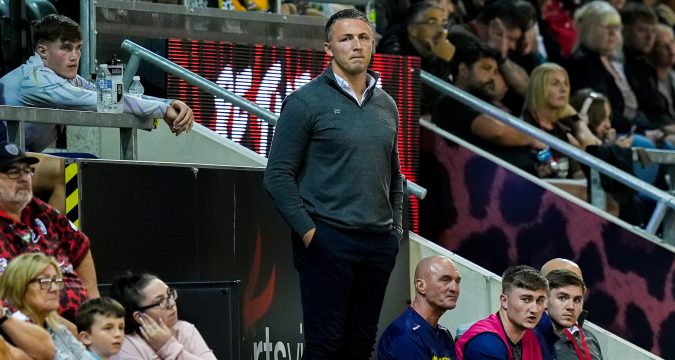 A leading Sports Psychologist has explained the ‘significant’ negative impact the absence of Head Coach Sam Burgess could have on the Warrington Wolves in Las Vegas this weekend.
Burgess is currently unable to travel with Warrington to Las Vegas due to issues in obtaining a visa, with the growing possibility that the 36-year-old may miss the
A leading Sports Psychologist has explained the ‘significant’ negative impact the absence of Head Coach Sam Burgess could have on the Warrington Wolves in Las Vegas this weekend.
Burgess is currently unable to travel with Warrington to Las Vegas due to issues in obtaining a visa, with the growing possibility that the 36-year-old may miss the Sports Psychologist reveals the ‘significant’ negative impact Sam Burgess’ absence could have on Warrington Wolves ahead of Wigan Warriors clash
 A leading Sports Psychologist has explained the ‘significant’ negative impact the absence of Head Coach Sam Burgess could have on the Warrington Wolves in Las Vegas this weekend.
Burgess is currently unable to travel with Warrington to Las Vegas due to issues in obtaining a visa, with the growing possibility that the 36-year-old may miss the
A leading Sports Psychologist has explained the ‘significant’ negative impact the absence of Head Coach Sam Burgess could have on the Warrington Wolves in Las Vegas this weekend.
Burgess is currently unable to travel with Warrington to Las Vegas due to issues in obtaining a visa, with the growing possibility that the 36-year-old may miss the 